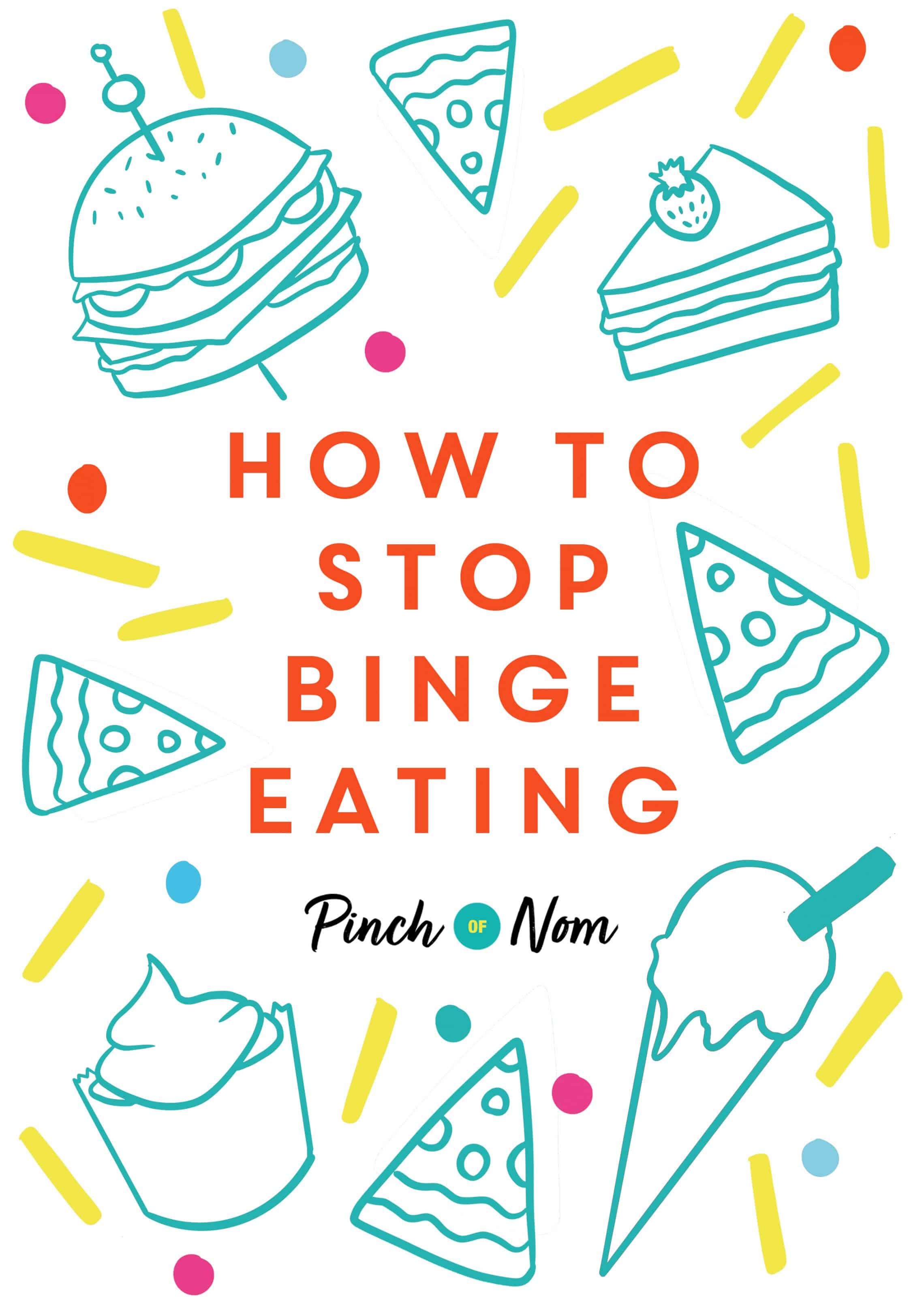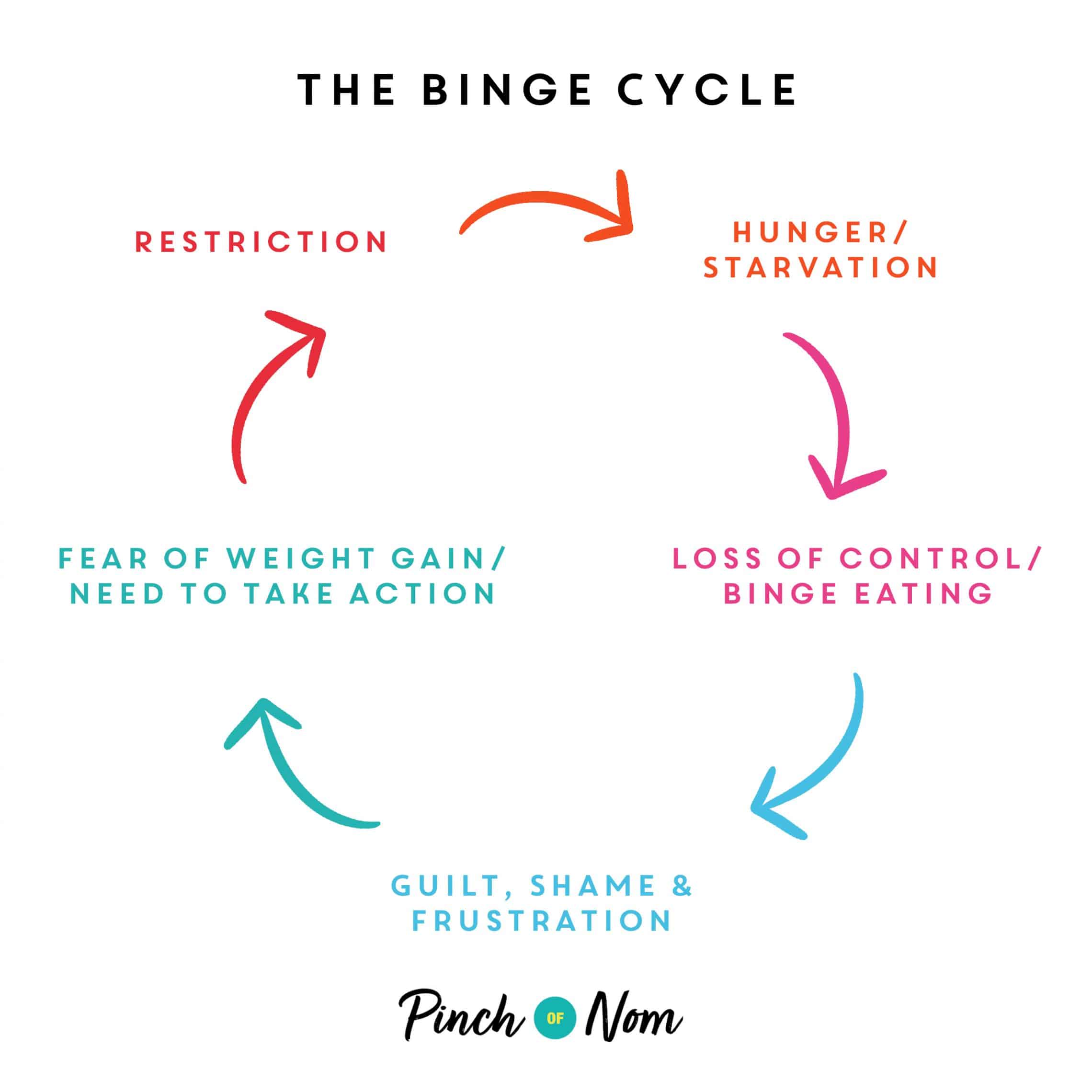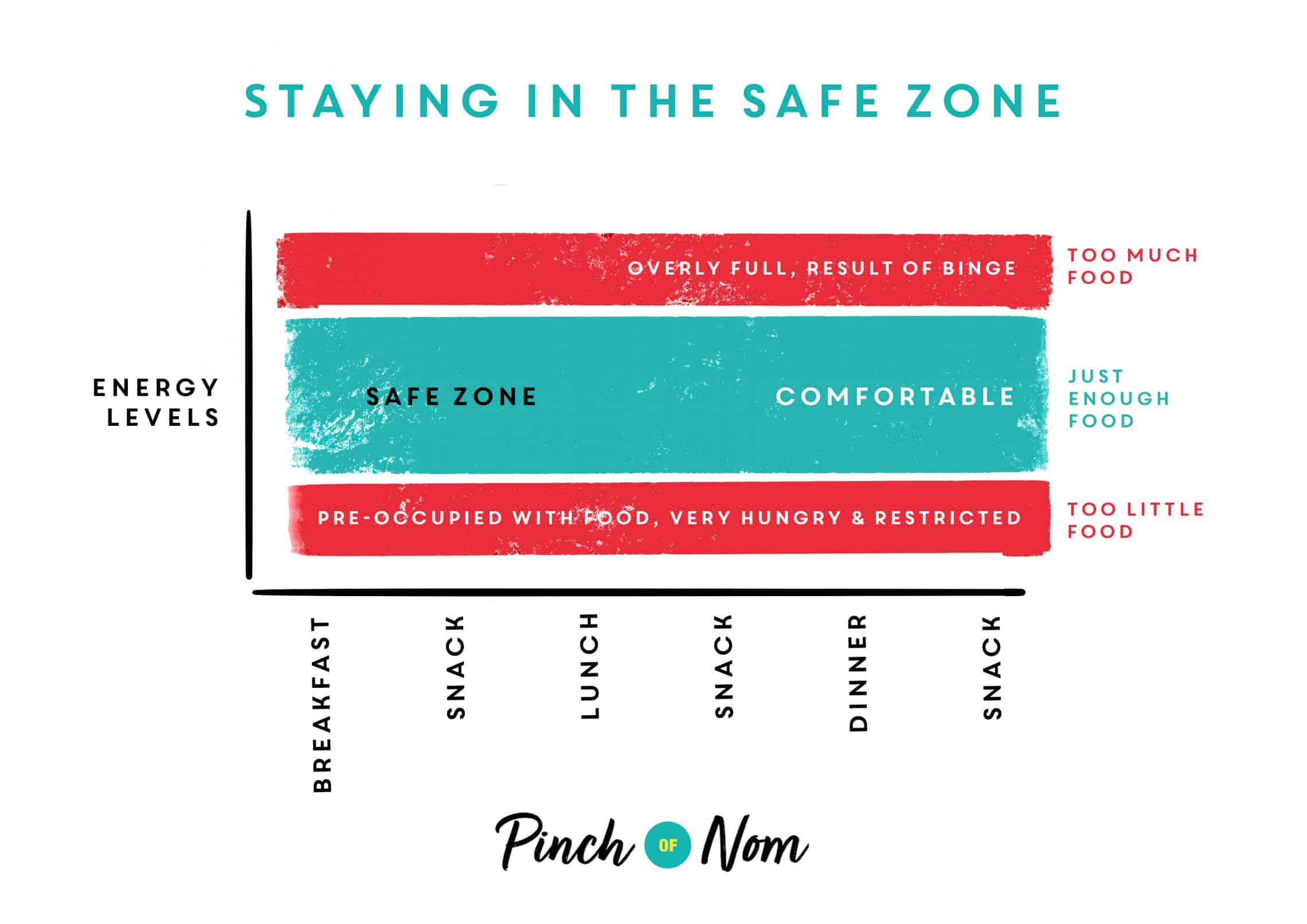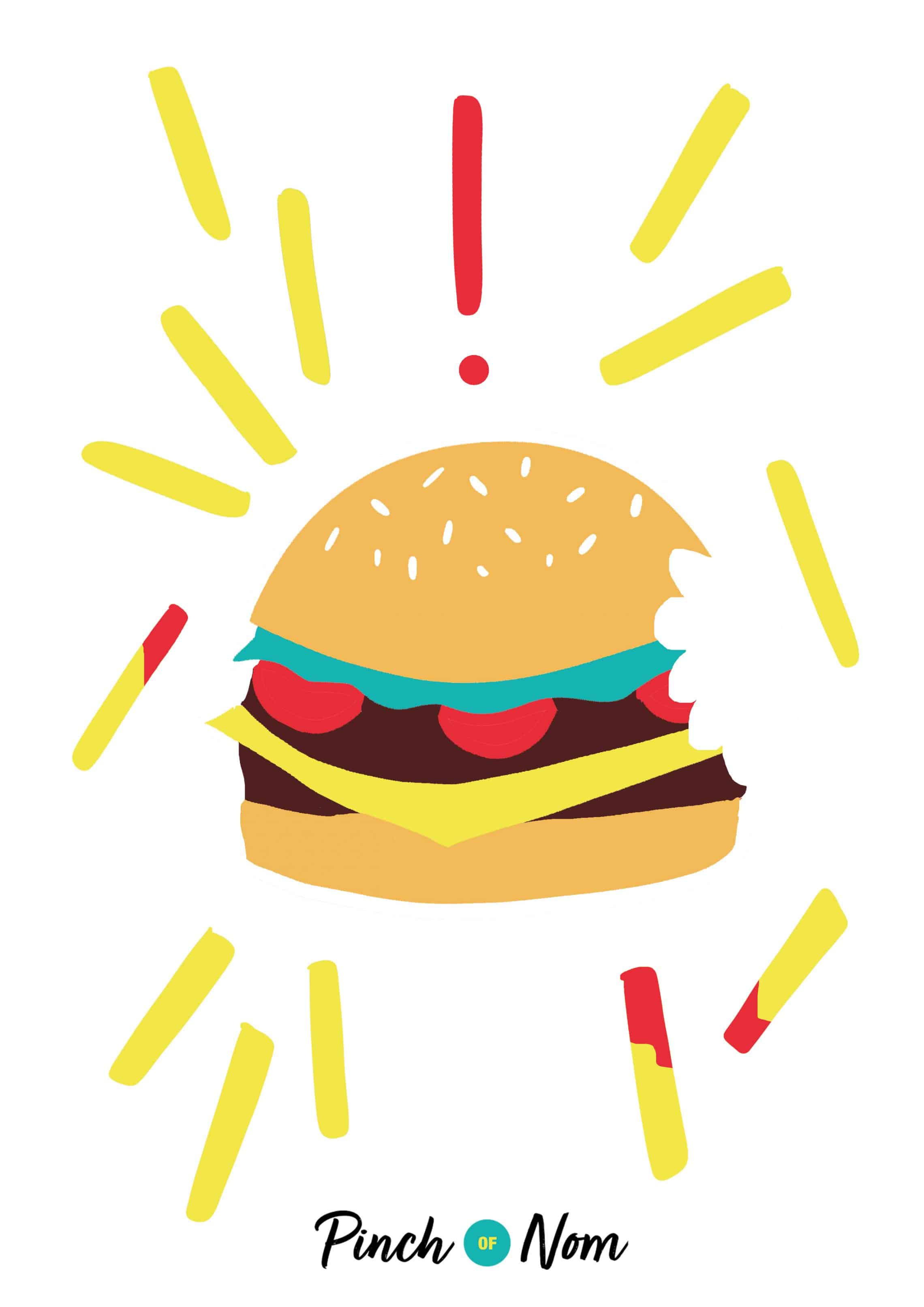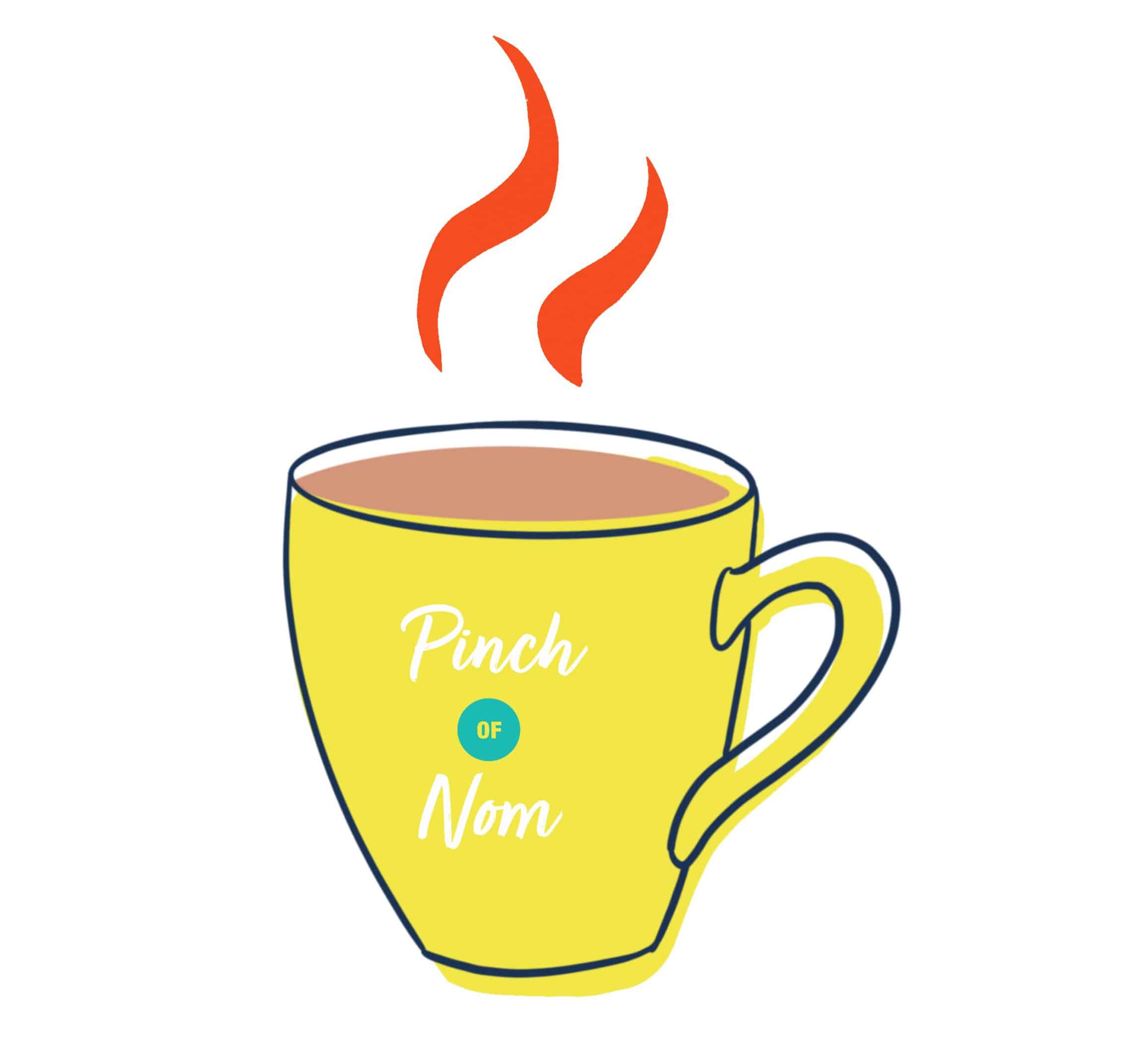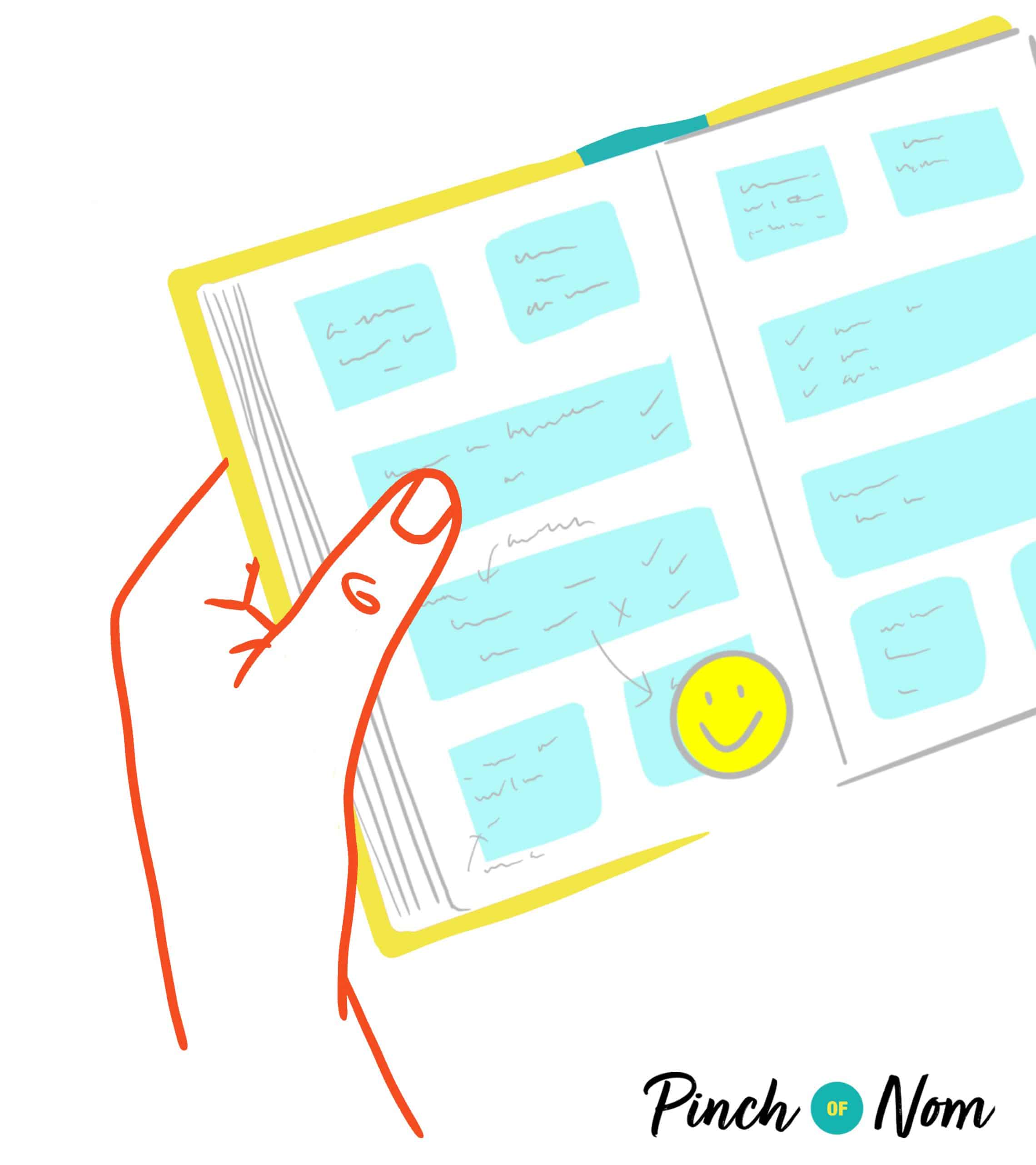How to Stop Binge-Eating
Have you ever had a big night out, landed face-first into a Maccas or family-sized box of Maltesers? Have you ever felt like you just can’t stop eating? Most of us have been there, believe me! We’ve put together this handy guide on how to stop binge eating for those moments.
Sometimes that feeling of not being able to stop eating grows and grows and before you know it, you’re hunting around the cupboards at home or sat in the car, eating until you feel sick then feeling crap about it afterwards.
Most people who are trying to lose weight know what this cycle is like – overeating, followed by feelings of guilt, shame and failure.
This leads to restriction or even more emotional eating and we can get stuck an endless cycle of bingeing. It can feel hopeless sometimes – trust us, we’ve been there!
But fear not! I am going to tell you about some of the science of binge eating and crucially how you can ‘snap out’ of one of those cycles. I’ll also give you some tips on how to prevent it in the future.
It’s worth noting though that I am not an expert in eating disorders. What I am is a trainee Psychiatrist with an interest in Cognitive Behavioural Therapy techniques, and an ‘expert by experience’ in bingeing and feeling crappy afterwards! If what you are eating is taking over your life or you are concerned you have an eating disorder, please see your GP. This article is NOT meant to be used to diagnose or treat any conditions or be used in place of medical advice in any way.
First of all, what actually is a binge? Medically speaking, it is when someone eats a large amount of food in a small space of time, far more than would others would eat in the same context. Sometimes binges happen in secret.
What bingeing is NOT is a sign that you are a failure, or that you have no willpower and will never lose weight. It is worth noting that overindulging at times is normal and nothing to be ashamed of (I’m looking at you, 12lb gain when on holiday in Florida), but sometimes it can become a vicious cycle.
Why do I binge?
The simple answer is…
YOU ARE HUNGRY.
Sometimes it can be tempting to think that the less we eat the more weight we lose, but this isn’t necessarily true. Your body has no idea that you have a holiday coming up and it needs to fit into a dress two sizes smaller.
All your body knows is that it is used to having a certain amount coming in and that amount has changed. This can lead to periods of starvation, and your body starts to worry that not enough food is coming in. This leads to spikes in cravings, as your body is doing its job and trying to get you to eat.
When confronted with either cooking a healthy meal from scratch or reaching for fast, easy, junk food it is no wonder we often make unhealthy choices. You might be like me and prone to getting ‘hangry’ – that means your blood sugar levels might be waning leading to mood swings, irritability and lack of energy.
The effects of starvation put you at a much higher risk of bingeing, and then afterwards the guilt makes you feel like you have to be even more restrictive to ‘catch up’ or ‘damage limit’. Guess what? Restricting makes you hungry and the whole thing starts again.
Think of your body having a ‘safe zone’ where you have eaten enough food to satisfy yourself and give you enough energy, without leaving you hungry or feeling too sluggish. You want to try and stay in this zone at all times.
How do I stay in this safe zone?
Try and maintain regular eating so that you’re not fighting a losing battle against your cravings – research recommends three meals a day and up to three snacks. Regular eating will stabilise your metabolism, prevent big fluctuations in mood and improve your concentration.
Not being hungry all the time will also mean that you are more able to reflect on your emotions and whether you are eating out of true hunger or not (more on that later).
You will find lots of different opinions regarding eating carbohydrates online, but when you’re trying to break the binge cycle it is really important to try and have some form of them with every meal. They are filling and help to get you out of that starvation mode.
This might be one of the reasons some diet plans only recommend reducing carbohydrates when you are eating healthily and regularly already, because you are less likely to fall into this starvation-binge cycle as your metabolism is more stable. Having said that, everyone is different and what works for one might not work for another.
What about emotional eating?
There is no doubt about it, for a lot of us food is a comfort and something we turn to when we are happy, sad, bored or any other emotion. Emotional hunger is different to physical hunger, and tends to occur in the chest or mouth area rather than stomach grumbles.
When you are eating irregularly your ability to distinguish physical hunger is reduced. To try and help you figure out whether you are actually hungry, ask yourself the following questions:
- When did I last eat?
- Was it less than 3-4 hours ago?
- What emotion am I feeling right now?
If you ate recently it could be emotional hunger – ask yourself if doing something else instead of eating is better. There are some tips later in this article.
What if I’ve just eaten my body weight in junk food?! Help!
It’s important not to restrict afterwards, because this will just lead to you feeling hungry and being at risk of a binge again.
Get right back to eating regular meals and snacks. I promise you, one binge will not be catastrophic for your weight loss, whereas being stuck in this cycle can be. It can be useful to keep a diary, including the time you ate, what you ate and the situation. For example;
- Who were you with and where?
- What were you doing?
- How were you feeling?
This can help you identify patterns. For example, for me, I found that going more than 5 hours without eating, and not having enough sleep put me at a much more significant risk of bingeing.
What can I do if I am craving a binge?
If you are physically hungry, eat! Think about what you want to eat, prepare it and take time to enjoy it, preferably at a table. Think about how it smells, how it tastes and enjoy it. If you think you are emotionally hungry, take a step back and think about what is going on for you right now.
Making a hot drink can give you this time to reflect, but try not to hang around in the kitchen afterwards if you are tempted! You could talk through your feelings with a friend, write them down, or even post in our Facebook group for some support and distraction.
If you feel like eating is the only option, consider what you want carefully. Some fruit or a yoghurt might be a good first option, and give it 20 minutes before going back into the kitchen.
What can I do instead of eat?
Here are some things that might help distract you:
- Brush your teeth! This gets you out of the kitchen and the tingling menthol sensation of toothpaste can help to nip an emotional craving in the bud. Plus, nothing tastes as nice when you have minty breath!
- Step away from the kitchen to do a task. What about organising that drawer full of old junk, or doing the ironing. Cleaning, whether you enjoy it or not, is an excellent choice because when you finish you also get a sense of achievement and a self-esteem boost. This can combat some of the emotional reasons leading to your cravings in the first place.
- Write down what emotion you are feeling and your reasons for and against bingeing. How will it help your emotions? Sometimes thinking rationally like this can help you avoid overeating.
- Exercise. Even just going round the block can be useful – it gives you some time for the cravings to pass and boosts your endorphins as well!
- Post on our Facebook group – we have 860,000 members and counting who know what it is like to struggle with eating healthily so let us offer you some kind words and advice.
- Find something to concentrate on. Some people swear by colouring books, painting or knitting to keep their mind off of food.
- Paint your nails or put on a face mask, or even a nice soak in the bath. Not only do you get the benefit of self-care and relaxation, it is also much harder to eat when you don’t want to mess up your nails or end up eating your mask!
So, next time you find yourself feeling like you can’t stop eating or you have lost control, remember that bingeing is not inevitable. Listen to your body and figure out whether you are physically hungry or whether you are eating for another reason.
Try not to restrict afterwards, as it puts you at a greater risk of bingeing again. I would recommend breaking this cycle before cutting out carbohydrates like some diet plans recommend, but as always that will be your personal choice.
If you eat regular meals and snacks you will soon notice the bingeing and cravings reduce, in the meantime try some of the distraction techniques above to get you through.
We are here for you!
Emma Brooks
Emma is a registered doctor and trainee Psychiatrist with an interest in Cognitive Behavioural Therapy. She lives with her husband, Rich, and dog, Dexter in Sheffield.
Fallen off the wagon and need some motivation, or want to help others on their journey?
Our Facebook group is growing by the day. If you haven’t joined yet head over there and take a look. You wouldn’t want to miss out on the fun would you?
You might just find the inspiration you need from our awesome members. If you’ve joined already why not invite any friends that may find it helpful?
